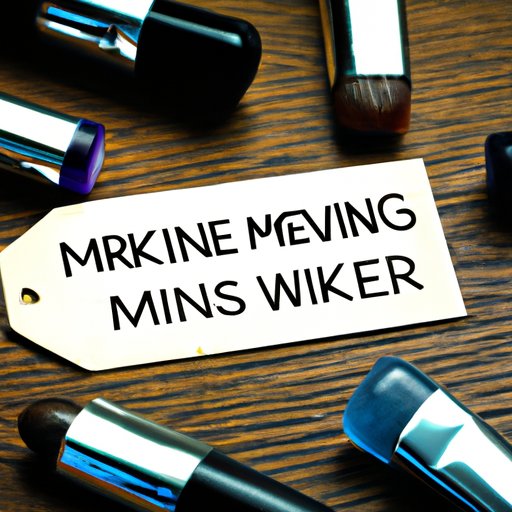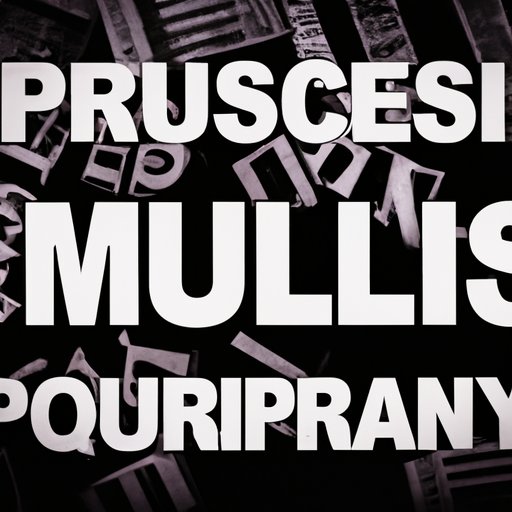Own Your Music Publishing: A Guide for Musicians
Every musician dreams of success – to create beautiful music and share it with the world. But what happens when your music rises to fame and you don’t have ownership of your publishing? This can lead to significant loss of revenue and control over your own work. That’s where owning your music publishing comes in.
Unfortunately, many musicians don’t know where to begin or may be hesitant to take on the responsibility. That’s why we’ve put together this guide for owning your music publishing, covering everything from the basics of music publishing to maximizing your income and protecting your intellectual property.

The Basics of Music Publishing: What Every Musician Should Know
Before diving into the specifics of owning your music publishing, it’s important to understand what music publishing is and the legal framework surrounding it.
Music publishing refers to the ownership and administration of music copyrights, which include the lyrics and melody of a song. Copyright laws protect musical works from unauthorized use and ensure that the copyright owner has the right to make a profit from it. When you own the copyright to your music, you have the exclusive right to reproduce and distribute your work, and you can collect royalties from various sources.
There are three types of royalties that you can collect as a music publisher: mechanical royalties, performance royalties, and synchronization royalties. Mechanical royalties are paid when your song is reproduced, while performance royalties are paid when your song is publicly performed. Synchronization royalties are paid when your song is used in film, TV, or commercials.
To collect these royalties, you need to register your music with a music rights organization, such as ASCAP, BMI, or SESAC. These organizations work to protect your copyright and collect and distribute royalties on your behalf. It’s important to note that you will need to pay a membership fee to join these organizations.
The Pros and Cons of Signing with a Music Publisher
If you’re just starting out in the music industry, you may be considering signing with a music publisher. While this can be a great way to get your foot in the door, there are both pros and cons to consider.
Pros of signing with a music publisher include having access to industry connections and resources, help with promoting and marketing your music, and assistance with licensing agreements. A music publisher can also handle the administrative work of collecting royalties and negotiating deals with broadcasters and other licensees. Additionally, a reputable music publisher can lend credibility to your work and help you gain recognition in the industry.
On the other hand, signing with a music publisher means giving up a portion of your publishing rights. The percentage of ownership will depend on the specific agreement, but it can range from 10% to 50%. This means that you will miss out on some of the royalties that your music generates. It’s important to carefully consider the terms of any agreement and negotiate for the most favorable terms possible. Make sure to pay attention to termination clauses, rights to audit, and other important clauses in the agreement.
DIY Music Publishing: A Step-by-Step Guide
If you decide that owning your publishing is the right choice for you, then it’s important to understand the steps involved in the process. This includes registering your copyrights, promoting your music, and collecting royalties on your own.
The first step to owning your publishing is to register your copyrights with the US Copyright Office. This will give you legal protection and establish your ownership of the work. You can register a single song for only $55, or register an entire album for $85. Make sure to keep copies of all your registration paperwork in a safe place.
Promoting your music is the next step in owning your publishing. There are many ways to get your music out there, including social media, creating a website, and networking with other musicians and industry professionals. You can also consider releasing your music on streaming services like Spotify or Apple Music. It’s important to create a plan for promoting your music and staying on top of your online presence.
To collect royalties on your own, you will need to register with a Performing Rights Organization (PRO) like ASCAP or BMI. These organizations will collect royalties from broadcasters and other licensees and distribute them to the appropriate copyright owners. You will also need to register with SoundExchange to collect digital performance royalties.
The Legal Side of Music Publishing: How to Protect Your Intellectual Property
While owning your publishing can be a great way to ensure that you have control over your music, it’s important to protect your intellectual property as well. This includes understanding trademark law, establishing licensing agreements, and enforcing your rights as a copyright owner.
Trademark law protects your band or artist name, logo, and other defining features of your identity. To protect your trademarks, you can register them with the US Patent and Trademark Office. This will give you legal protection and the ability to stop others from using your name or logo without permission.
Licensing agreements are an important aspect of music publishing, particularly when your music is used in film, TV, or commercials. These agreements specify how your music can be used and the compensation you will receive for its use. Make sure to read these agreements carefully and consult with legal professionals if necessary.
If you suspect that someone has used your music or trademark without permission, you can enforce your rights as a copyright owner. This can include sending cease-and-desist letters, filing a lawsuit, or negotiating a settlement. It’s important to have a good understanding of your rights and seek legal counsel if necessary.
Collaborating on Music Projects: How to Decide Who Owns What
Collaborating with other musicians can be a great way to create unique and interesting music. However, it can also complicate the issue of publishing ownership. It’s important to establish ownership and royalty splits at the beginning of any collaboration to avoid legal disputes down the line.
When collaborating with a band or other musicians, it’s important to create a written agreement that outlines ownership and royalty splits. This agreement should also specify how revenues will be collected and distributed. Make sure that everyone involved signs the agreement and keeps a copy for their records.
It’s also important to be aware of common legal pitfalls when collaborating with others. These can include issues with songwriting credits, disputes over ownership, and disagreements about recording and distribution. Make sure to communicate openly and honestly with your collaborators and seek legal advice if necessary.
Maximizing Your Music Publishing Income: Tips and Tricks from Industry Experts
When it comes to owning your publishing, there are many ways to maximize your income and make the most of your royalties. Industry experts have a wealth of knowledge and experience when it comes to music publishing, so it’s important to learn from their insights.
One of the keys to maximizing your music publishing income is to diversify your revenue streams. This can include licensing your music for use in film, TV, and commercials, as well as earning royalties from digital performance and streaming services. It’s also important to stay on top of the latest industry trends and technological developments.
The advice of professionals can be invaluable when it comes to owning your publishing. Consider attending conferences, networking with other musicians and industry professionals, and seeking out resources like books, podcasts, and online courses.
Music Publishing in the Digital Age: How Streaming is Changing the Game
In recent years, the rise of digital streaming has significantly impacted the music industry and changed the way that musicians earn revenue from their work. While traditional revenue streams like mechanical and performance royalties remain important, digital streaming has opened up new ways to earn money from your music.
Streaming services like Spotify, Apple Music, and Amazon Music offer a way for musicians to reach a wider audience and earn royalties from plays on the service. While the per-stream rates may be low, the sheer volume of plays can add up over time. It’s important to keep streaming in mind when promoting your music and strategizing your revenue streams.
Additionally, social media and other digital platforms offer a way to market your music directly to fans and build a following. A strong social media presence can help you gain recognition and drive traffic to your music on streaming services.
Conclusion
Owning your publishing can be a great way to ensure that you have control over your music and earn the revenue that you deserve. By registering your copyrights, promoting your music, and collecting royalties on your own, you can take ownership of your work and protect your intellectual property.
However, owning your publishing also comes with responsibility. It’s important to understand the legal framework surrounding music publishing, protect your intellectual property, and maximize your income through diversifying your revenue streams and seeking the advice of industry professionals.
By taking the steps outlined in this guide, you can become a successful owner of your music publishing and achieve your dreams in the music industry.
(Note: Is this article not meeting your expectations? Do you have knowledge or insights to share? Unlock new opportunities and expand your reach by joining our authors team. Click Registration to join us and share your expertise with our readers.)
